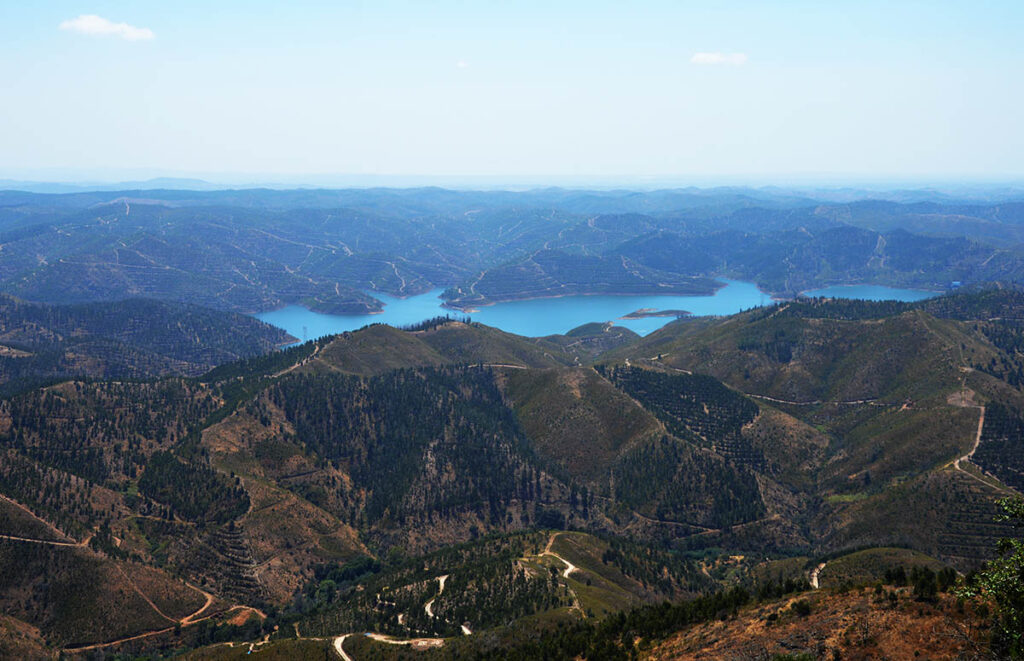The Sustainable Water Platform (PAS), which brings together entities such as the League for the Protection of Nature (LPN), Quercus, Associação Almargem or Glocal Faro, is against the expansion of the irrigation area in the Algarve, in the public consultation on Regadio2030 that ended this Saturday, 15 January.
PAS also includes the associations Rocha Portugal, Civil, Faro 1540, Probaal, Regenerarte and citizen movements such as “Água é Vida” and “FALA – Fórum do Ambiente do Litoral Alentejano”.
In a position sent to the newsrooms, all these entities consider that «the proposals for the expansion of irrigation do not have any basic data to support them».
«There is no information on existing and predictable water resources, neither in quantity nor in quality, on estimated consumption and on the maximum area that will be possible to irrigate, taking into account the foreseeable consumption of agricultural activity, the guarantee of flows ecological resources and the constitution of a strategic reserve that guarantees in the future drinking water in quantity and quality for human consumption», he adds.
According to what is read in the study “Regadio 2030”, which has the particularity of having EDIA – Empresa de Desenvolvimento e Infraestruturas do Alqueva, in the Algarve, “the interventions to be carried out, with regard to the implementation of new irrigation, mainly involve the integration of existing private irrigation systems, supplied by underground sources, into collective irrigation systems supplied by surface sources, in order to preserve hydrogeological resources, in a region particularly susceptible to saline intrusion».
For the Sustainable Water Platform, the «intention is good: however, it sins for deficient information».
“The saline intrusion that is mentioned results from the use of excessive volumes of groundwater by agriculture, but this is only part of the damage that the activity causes to aquifers. In addition to the saline intrusion problem, all aquifers in the region are polluted with contaminants (fertilizers and synthetic pesticides) from agricultural activity and the soil mobilization that intensive agriculture practices destroy the aquifer recharge points, adding to the problem of lack of rainfall, the problem of lack of recharge that has been happening in the region for several years», he adds.
As for the installation of small mobile weirs to remove pressure on underground aquifers, “it seems like a good initiative”.
But, defend environmentalists, «with the growing scarcity of rainfall, the effectiveness of the intervention is doubtful and the planned use of this water maximizes the pressure on the resource. In fact, transforming private irrigation into public implies an obligation to supply water that currently does not exist and expanding irrigation areas also increases the pressure on the resource, which is unreasonable in the current scenario of climate change».
«Another aspect that is not understood is the overlap of the proposed interventions with the intervention foreseen under the PRR (and which, by the way, was also supposed to be included in the investments accounted for in this document) of making a water abstraction in the Guadiana downstream of Alqueva, mainly because the proposed new irrigation systems are located in the Beliche-Odeleite system, which will supposedly be reinforced by water coming from this catchment», says PAS.
«We also did not agree with this work provided for in the PRR, namely due to its environmental impacts, and the document they are now presenting reinforces our argument since in the Regadio 2020 they include a “Proposal for the implementation of water sources, in the tributaries of the Guadiana downstream of Alqueva, for ecosystem services – in order to increase the guarantee of ecological flow in the Guadiana River, especially in the dry semester in order to reduce the pressure on the volumes stored in Alqueva”. Obviously, carrying out the work to capture water in the Guadiana would further compromise the availability of the ecological flows necessary for the normal functioning of the ecosystems downstream of the Alqueva», he adds.
«We do not agree with the proposed interventions for the Algarve because we already have the installed capacity to capture water in dams. What happens is that due to the lack of rainfall these dams all have a low level of capture», he concludes.
According to the latest data for December 2021, none of the Algarve dams present reassuring levels. For the rest, the entire Algarve is in a situation of drought.




















Comments